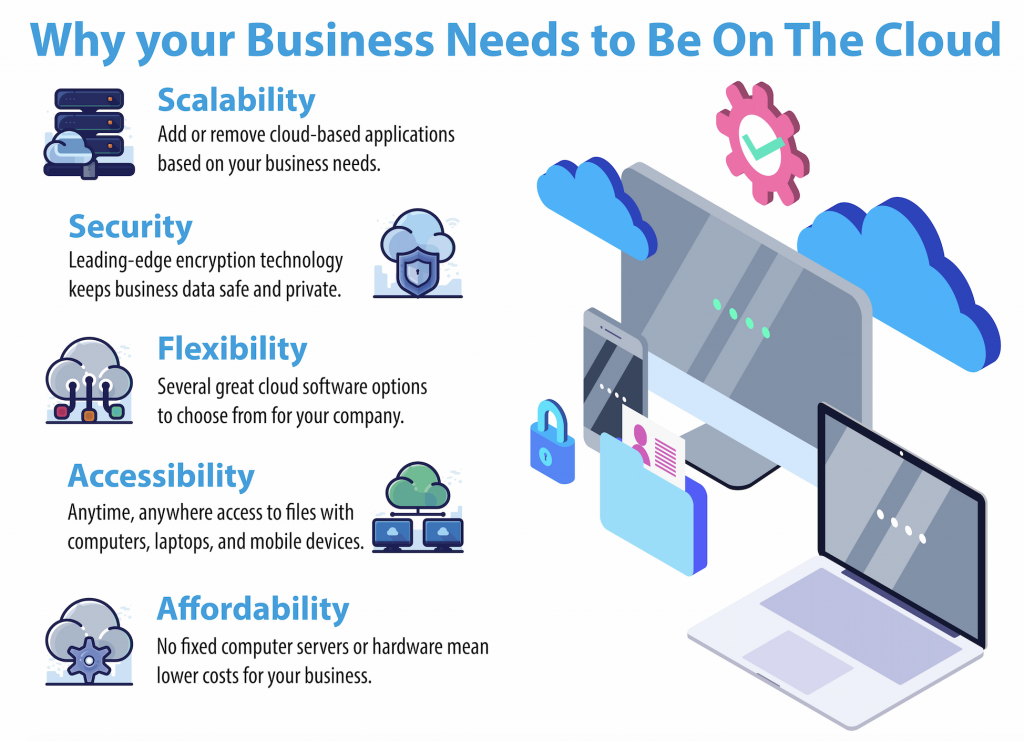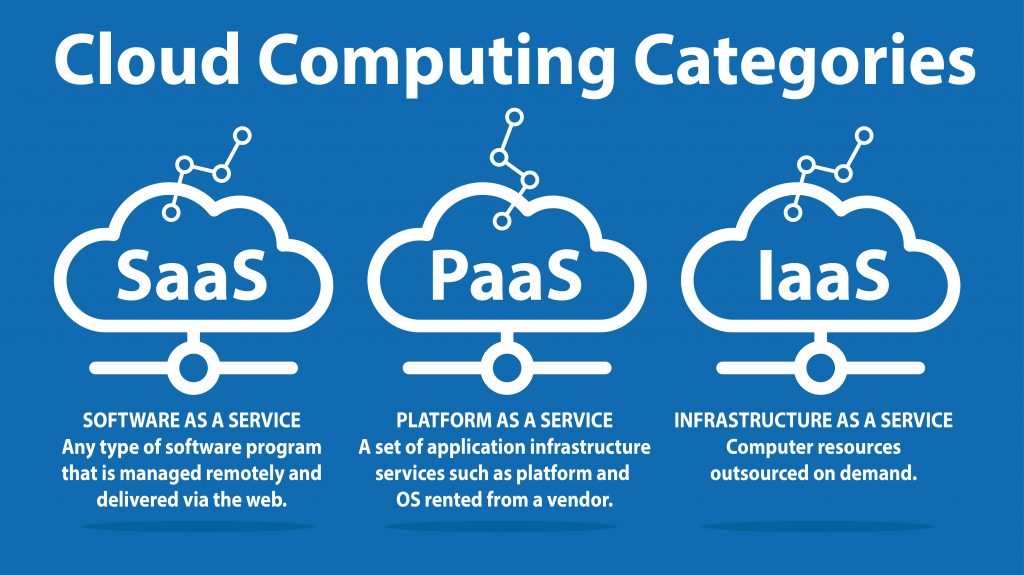Why is cloud computing one of the biggest growing career paths?
 Did you know that the average pay of entry-level Cloud professionals is $124,300? Cloud is a virtual platform that allows you to access various applications and services on the go without having to use your own hardware platform. You are on the cloud more than you realize in your daily life activities. You are on the Cloud, for example, when you are using your mobile phone for Facebook, when you are watching a video, when you are transferring or checking your bank balance on the Internet, or when you are shopping online. Cloud services can now provide various hardware and software services to avoid physical storage for handling data and operations.
Did you know that the average pay of entry-level Cloud professionals is $124,300? Cloud is a virtual platform that allows you to access various applications and services on the go without having to use your own hardware platform. You are on the cloud more than you realize in your daily life activities. You are on the Cloud, for example, when you are using your mobile phone for Facebook, when you are watching a video, when you are transferring or checking your bank balance on the Internet, or when you are shopping online. Cloud services can now provide various hardware and software services to avoid physical storage for handling data and operations.
Worldwide spending on public cloud services will grow at a 19.4% compound annual growth rate (CAGR) from nearly $70B in 2015 to more than $141B in 2019 – Forbes
Why companies need the cloud
- It provides better insights for companies to rely on cloud platforms to analyze the trends and data without downtime.
- It allows companies to free the memory and space from unwanted loads which speed up the business operation and allows them to be more agile and responsive to customer needs
- It streamlines the companies activities in an efficient manner removing barriers imposed by conventional technologies
- It helps companies achieve their goals and objectives in a cost-efficient manner.

Types of Cloud Services
- SaaS– SaaS, or Software as a Service, is the most known of the three categories of cloud computing. SaaS is the actual software delivered to the user over the internet. It doesn’t need to be downloaded and installed on individual devices in order to be used by an individual, team, or company which makes it easy to use and highly scalable. Google Apps, Dropbox, and DocuSign are SaaS examples.
- PaaS – PaaS stands for “Platform as a Service.” It refers to cloud-based platform services like operating systems, databases, programming language execution environments, etc. PaaS provides a framework that is accessible to multiple developers to build custom software.
- IaaS- Infrastructure as a Service (IaaS) refers to the providing of instant computing infrastructure that is managed over the internet. This type of service allows companies to gain quick access to the resources needed to build out services and technologies delivered over the cloud. IaaS companies include Amazon, Rackspace, Google, and many others. IaaS companies manage the hardware so their clients don’t have to.
Who is the biggest cloud player in the market?
Amazon’s AWS (Amazon Web Services) is the biggest market player when it comes to the public cloud with 31% market share and growth followed by Microsoft with 9%, IBM with 7%, Google and Salesforce with 4% market shares respectively.
Amazon AWS Provides:
- Infrastructure-as-a-Service (SaaS)
- Platform-as-a-Service (PaaS)
- Cloud-Based Networking
- Cloud-Based Storage
- Cloud-Based Servers
- Cloud-Based Remote Computing and Security
Certifications to Consider for Cloud Computing
- Amazon Web Services (AWS) Solutions Architect Associate
- Amazon Web Services (AWS) Solutions Architect Professional
- Amazon Web Services (AWS) Certified Cloud Practitioner
- Microsoft Certified Azure Solutions Architect Expert
- CompTIA Cloud+
- Certified Cloud Security Professional (CCSP)
- CompTIA Linux+
- Certified Cloud Security Professional
Types of cloud computing
There are three different ways to deploy cloud services: on a public cloud, private cloud, or hybrid cloud.
- Public Cloud – are owned and operated by a third-party cloud service providers. These providers deliver computing resources like servers and storage over the internet. With a public cloud, all hardware, software, and other supporting infrastructure is owned and managed by the cloud provider. You access these services and manage your account using a web browser.
- Private Cloud – refers to cloud computing resources used exclusively by a single business or organization. A private cloud can be physically located on the company’s on-site datacenter. Some companies also pay third-party service providers to host their private cloud. A private cloud is one where the services and infrastructure are maintained on a private network.
- Hybrid Cloud – is a combination of public and private clouds where data and applications are shared between them. This gives your company greater flexibility, more deployment options, and helps optimize your existing infrastructure, security, and compliance.
What are the types of jobs associated with cloud technologies?
Cloud Software Engineer
A Cloud software engineer is a software developer that specializes in working on design computer systems stored on the internet. They help determine how the system should operate and provide guidance to the programmers who help write the program code. Cloud software engineers are responsible for overseeing the development of these systems, maintaining them and ensuring that they work properly. They may design new systems or upgrade existing systems.
According to data from PayScale, the average salary for Cloud Software Engineer is $94,021 per year, with a reported salary range between $68,000 to $143,000 per year depending on experience, location and skills.
Cloud Architect
A cloud architect is responsible for managing the cloud computing architecture in an organization, especially as cloud technologies grow complex. They use frond-ed platforms, servers, storage, delivery, and networks to manage cloud storage. They communicate with vendors to negotiate third-party contracts for hardware, software, and other cloud technologies
According to data from PayScale, the average salary for a cloud architect is $124,923 per year, with a reported salary range between $82,309 to $185,208 per year depending on experience, location and skills.
Cloud Engineer
A cloud engineer is an IT professional responsible for any technological duties associated with cloud computing, including design, planning, management, maintenance, and support. They need to be familiar with programming languages including Java, Python, and Ruby.
According to data from PayScale, the average salary for a cloud Engineer is $91,409 per year, with a reported salary range between $60,00 to $126,000 per year depending on experience, location, and skills.
Cloud Security
A cloud security engineer specializes in providing security for cloud-based digital platforms and plays an integral role in protecting an organization’s data. This may involve analyzing existing cloud structures and creating new and enhanced security methods. Cloud security engineers will need strong technical skills, which may include experience with Linux and Windows operating systems, scripting languages like Python, and cloud provider ecosystems like Amazon AWS. They should have excellent attention to detail, as they must constantly monitor systems to ensure there are no external threats.
According to data from PayScale, the average salary for a cloud security engineer is $136,485 per year, with a reported salary range between $77,000 to $144,000 per year depending on experience, location and skills.
You can read further on the best cloud computing certifications to have on your resume.

































Leave a Reply
You must be logged in to post a comment.